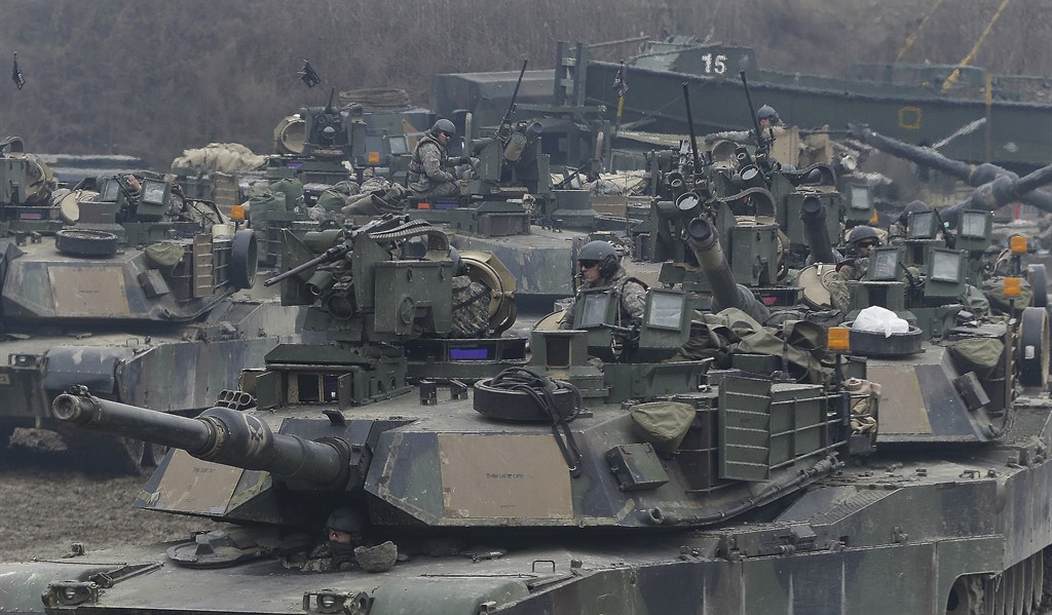Every four years, Congress appoints a group of outside experts to examine U.S. national security and report on its findings at the end of the year. Because this is an election year, the panel finished its report and published its findings early.
The "Commission on the National Defense Strategy" conducted a review of the "assumptions, strategic objectives, priority missions, major investments in defense capabilities, force posture and structure, operational concepts, and strategic and military risks" associated with the 2022 National Defense Strategy (PDF).
The Commission's recommendations and conclusions are unanimous.
I recommend that you sit down and pour yourself a stiff drink if you're going to delve into the 112-page report. It's a look at how a nation can spend $850 billion on defense and still be extremely vulnerable to its most implacable adversaries.
The major reason the report is being released is to increase public awareness. “Public awareness is dismal,” said former Rep. Jane Harman. calling America’s security threats “blinking red.”
“The United States is still failing to act with the urgency required, across administrations and without regard to governing party,” the report says.
- The United States faces the most challenging global environment with the most severe ramifications since the end of the Cold War. The trends are getting worse, not better.
- DoD cannot, and should not, provide for the national defense by itself. The NDS calls for an “integrated deterrence” that is not reflected in practice today. A truly “all elements of national power” approach is required to coordinate and leverage resources across DoD, the rest of the executive branch, the private sector, civil society, and U.S. allies and partners.
- Fundamental shifts in threats and technology require fundamental change in how DoD functions. DoD is operating at the speed of bureaucracy when the threat is approaching wartime urgency.
The report says that the Pentagon could deplete most of its munitions within "three to four weeks" in a protracted war with China. Some kinds of ammunition, such as anti-aircraft missiles, could only last a few days.
"America’s odds of fighting a major war are the highest in 80 years, and its military isn’t prepared for one," reports Defense News.
- U.S. industrial production is grossly inadequate to provide the equipment, technology, and munitions needed today, let alone given the demands of great power conflict.
- The DoD workforce and the all-volunteer force provide an unmatched advantage. However, recruiting failures have shrunk the force and raise serious questions about the all-volunteer force in peacetime, let alone in major combat. The civilian workforces at DoD and in the private sector also face critical shortfalls.
We might be tempted to blame "wokeness," but the reality is those policies don't figure into deficiencies in hardware or in the failure of our allies to carry the load. But we can look to the homefront for some of the most pressing issues.
But legislation and money do little to solve what the commission calls America’s biggest issue: the home front. The military isn’t recruiting as many people as it wants, though it’s doing better retaining those who already joined. And during the Cold War, the report argues, higher tax rates for businesses and high earners made it easier to sustain a bigger defense budget. The combination of a less mobilized public, lower taxes and much higher government debt make a defense buildup harder, the report argues.
"U.S. industrial production is grossly inadequate to provide the equipment, technology, and munitions needed today, let alone given the demands of great power conflict," their report said.
We have reached a crossroads as a nation. If we want to remain the preeminent military power in the world, we're going to have to spend considerably more on national defense. How much? The report recommends that the 2023 Fiscal Responsibility Act spending cap be revoked and budgets "provide real growth for fiscal year 2025 defense and nondefense national security spending that, at bare minimum, falls within the range recommended by the 2018 NDS Commission." That increase was 3-5% a year.
If we're not going to spend it, we may as well get used to being a second-rate power.
The problem with repealing the Fiscal Responsibility Act is that Congress is likely to ignore the national security crisis and pour the extra money into their pet projects and constituencies.
Former U.S. Ambassador to Moscow John Sullivan said America was "asleep" when it came to addressing the threat from China and Russia.
Will we wake up before it's too late?










